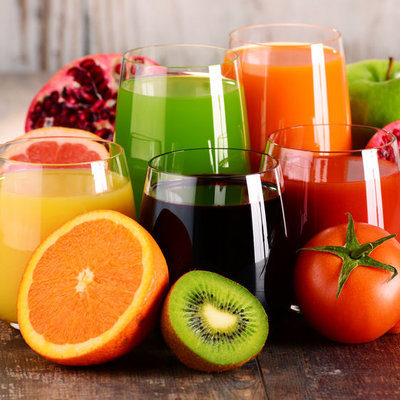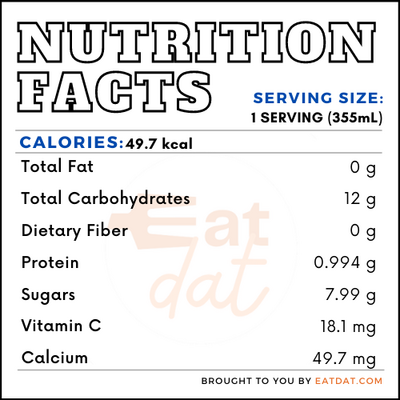
Juice
also known as Vegetable juice, Fruit juice, Concentrates
What is Juice?
Juice is the liquid extract from vegetables or fruits. It can also refer to liquids that are obtained from grains and plants like corn, wheat grass, or dandelion, as well as meat, such as clams.
- The most common types of juice are made from fruits such as orange, pineapple, apple, etc.
- This beverage can be consumed with or without the pulp and can be sweet or savory, depending on the source.
Here are some of the top brands available on the market:
- Boowl
- Ganterra
- Minute Maid
- Florida’s Natural
- Tropicana
- Bolthouse
- Beet It
- Sunsweet
Origin of juice
The first juice was made by boiling herbs in water. Around 1300 AD, we know that this drink had words in different languages referring to herbal water, broth, soup. However, much earlier than this, the Dead Sea Scrolls refer to the mashing of pomegranate and figs around 150 BC. Today, juicing technology is far more advanced and provides a variety of flavors and textures.
Nutrition
One serving (355mL) of vegetable juice contains:

Fruit juices are filled with vitamins and minerals, as well as bioactive compounds, phytochemicals, calcium, folate, magnesium, potassium, and phosphorus, all of which promote good health. Regular intake can strengthen the immune system, keep blood pressure in check, and maintain bone health. On the downside, fruit juices can lead to obesity because of the high sugar content and may also affect dental health negatively. Vegetable juices, on the other hand, are low in sugar, while providing similar benefits. Unlike fruit juices, vegetable juice is also alkaline in nature and balances the pH of the body.
When making it at home, it is important that this drink be consumed while fresh since harmful bacteria starts growing in it immediately. Another thing to bear in mind is that juicing removes all the useful fiber from fruits and vegetables, so juicing options that retain fiber are better. Fermented vegetable juices promote the development of probiotic bacteria, which helps in boosting the immune system. These are recommended for improving gut health.
Commercial production
The commercial production of both fruit and vegetable juices happens in several stages. First, the fruit or vegetable is picked and sorted, then washed and cleaned thoroughly. In case of some vegetable juices, they are cooked in order to release their flavors. The fruits or vegetables are then pressed, and this is extracted. Then, the processes of filtration and pasteurization of this extracted liquid get rid of the bacteria. Finally, it is either packaged or goes onto further processing to condense it into concentrates.
Juice recipes
Juice can be consumed as it is or used to give flavor to other dishes. Here are a few recipes:
- Green Juice
- Linguine with White Clam Sauce
- Beet Poached Salmon
- Pineapple and Green Capsicum Drink
- Endive with Tart Apple Dressing and Blue Cheese
- Pineapple Cake
FDA regulations
The FDA defines juice as any aqueous liquid expressed or extracted from fruits or vegetables, or purees of the edible portions of the same. It can also cover the concentrates of the fruits or vegetables. These beverages are strictly monitored by the FDA for safety and to minimize microbial food safety hazards. There are very strict regulations governing the labeling of different fruit juices. Companies are required to specify the exact amount of this present in the product.
References
M.H. Saarela, Probiotic functional foods, Functional Foods (Second Edition), 2011, https://www.sciencedirect.com/topics/food-science/vegetable-juice
Clemens, Roger et al. “Squeezing fact from fiction about 100% fruit juice.” Advances in nutrition (Bethesda, Md.) vol. 6,2 236S-243S. 13 Mar. 2015, doi:10.3945/an.114.007328, https://www.ncbi.nlm.nih.gov/pmc/articles/PMC4352186/
